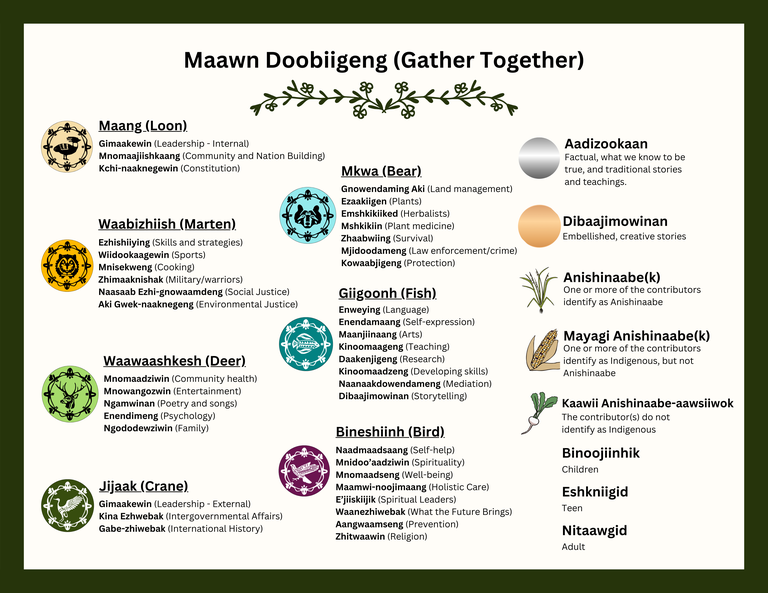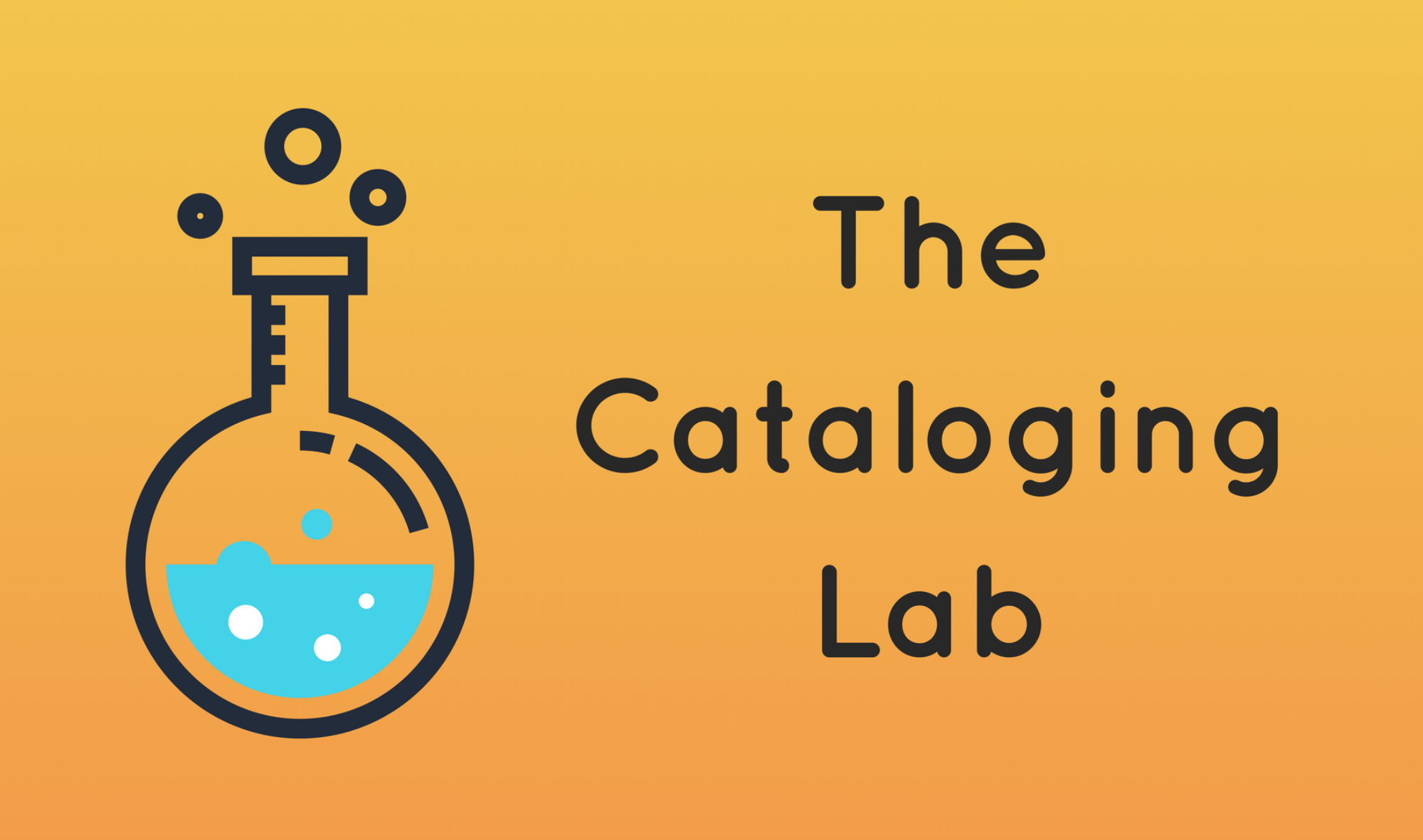Critcatenate is an effort to keep folks up to date on critcat efforts with a monthly-ish roundup of news. Critcat is short for critical cataloging, focusing on the ethical implications of library metadata, cataloging, and classification practice, standards, and infrastructure.
#critcat in May 2024:
- New survey: the Diversity, Equity and Inclusion Steering Group of the ACRL Rare Books and Manuscripts’ Bibliographic Standard Committee is looking to create an online platform for people from marginalized communities who are interested in cataloging and metadata work to connect with one another. They’ve asked people to fill out a short survey to see if Discord or another platform might work. The survey will remain open until June 14.
- New classification!!!: Introducing Maawn Doobiigeng (Gather Together), the new classification system of the Saginaw Chippewa Tribal Libraries. The system is the result of a 2019 grant from the Institute of Museum and Library Services working to address the question: “How can tribal libraries use traditional ways of knowing and being to break free of the colonialist epistemology of existing library organizational systems that reinforce a damaging worldview?”

- New article: Instituting a framework for reparative description by Stephanie M. Luke & Sharon Mizota, published in the journal Archival Science. Features interviews with representatives from nineteen institutions that had published or presented on their implementation of reparative description between 2017 and 2020. Introduces the Maturity Model for Reparative Description (MMRD), a tool to describe and classify reparative description work across eight evaluative categories. “The authors offer the MMRD as a flexible model for institutions to adopt and adapt as a framework for assessing their reparative description work, measuring the progress of their initiatives, and planning and projecting areas of strategic growth.”
- New blog post: Riot or Uprising? A Reflection on Race and Language in the Contested City by Melissa Rovner, published on the Chicago History Museum blog
- New blog post: Reimagine descriptive infrastructure: dreaming and enacting change together by Merrilee Proffitt and Mercy Procaccini
- New blog post: Critical Cataloging Interest Group Announces Subject Heading Changes in Catalyst, describing the work of the John Hopkins Sheridan Libraries Critical Cataloging Interest Group around the “Illegal immigration” headings
- New announcement: The Persons and Firms data of the Women’s Print History Project is now a part of the CERL Thesaurus, maintained by the Consortium of European Research Libraries (twitter announcement)
- New recordings available: from NETSL (New England Technical Services Librarians) 2024 Annual Conference, including:
- Alternative Cataloging: Moving Beyond Dewey presented by Caitlin Staples
- The Solution is Community: Problem Solving in Classification by Violet Fox
- Bringing User Voices Into Cataloging Research by Brian Dobreski
- New recordings available: Practical Approaches to Reparative Description: A Workshop Series hosted by DPLA (Digital Public Library of America), featuring three sessions:
- Representations of Gender and Sexuality in Metadata
- Local Contexts: Tools for Supporting Indigenous Rights and Interests in Collections
- Special Projects in Reparative and Inclusive Description
- New report available: preliminary report of the Program for Cooperative Cataloging (PCC) Task Group on Metadata Related to Indigenous Peoples of the Americas
- New blog post: Taking on the Challenge: PCC’s Metadata Justice Work for Indigenous Communities by Katherine Witzig, published on the SAA (Society of American Archives) Descriptive Notes blog
- New blog post: Coming Together: How Metadata Creates Communication between Archivists and Catalogers by Joanna Fuchs, published on the SAA Descriptive Notes blog
- New to me: Reframing Reparative Description Initiatives through Critical Race Theory and Black Feminism by Grace Muñoz, published in 2021 on the SAA Descriptive Notes blog
I’m doing a brief review of the new LCSH lists for headings that might be of interest to readers of Critcatenate. LCSH list numbers consist of a two-digit number for the year and a two-digit number for the month the headings were approved (for example, headings on list 2402 were approved in February 2024).
New LC headings of note on list 2402:
- new LCSH: Body positivity movement
- new LCSH: Climate change adaptation
- new LCSH: Fat-acceptance movement
- new LCSH: Self-acceptance in children
Multiple proposals related to the body positivity and fat acceptance headings were rejected; read the rationale for those in the LC Summary of Decisions for February 2024. An LCSH proposal for White flight was also rejected at the February 2024 editorial meeting.
Note that on the tentative (not yet decided list) of 2406, there are proposals related to miscegenation and Interracial marriage. Consider contacting LC if you have opinions about those proposals (see contact info at the top of the page).
In a real bummer of a decision, LC has announced that their monthly editorial meetings will no longer be open to the public. Instead, they will offer quarterly meetings that will discuss LCSH more broadly. This change reduces the amount of input library workers have on specific proposals, and reduces the opportunities library workers have to listen in and understand the decision making process behind LCSH decisions. LC editorial meetings have been open to anyone since August 2021.
Upcoming:
- Monday June 3–Friday June 7: NASIG 2024 Conference in Spokane, Washington, will have multiple critcat-related presentations, including:
- “This Work is Urgent, This Work will Take Time”: Integrating EDI-A into Resource Description Workflows presented by Jennifer Browning
- You Want Me to Catalog What? Practical Strategies for Cataloging Insensitive/Offensive Material presented by Mandy Hurt
- LCSH and other LC vocabularies, a workshop on proposing LCSH revisions/additions presented by Melanie Polutta. Very nice to see LC taking this role!
- Thursday June 13: 2024 Metadata Justice in Oklahoma Libraries & Archives Symposium, a free, online event hosted by the University of Central Oklahoma. Sessions include:
- keynote by Treshani Perera
- Unraveling Metadata Justice: Librarians and Metadata Wranglers in Making Information Fair for Everyone, presented by Rebekah Silverstein (Oklahoma State University)
- The Limits of Repair: The Case for and Boundaries of Reparative Description, presented by Rachel Searcy and Weatherly A. Stephan (New York University)
- Reparative Analysis of OOHRP’s Oklahoma and OSU Diverse Sexuality and Gender Collections, presented by Katanna Davis and Patrick Daglaris (Oklahoma State University)
- Apparitional Representations: Disability History, Reparative Descriptions, and Ethical Failings in a Special Research Collection, presented by Melissa Weiss
- Unveiling Hidden Stories: Interactive Digital Humanities Resources Empower Research on Underrepresented Communities, presented by Megan Macken, Sara Mautino and Amy Hunt (Oklahoma State University)
- Inclusive Metadata through Bibliographic Control, presented by Kirsten Bryson and Devin McGhee (Metropolitan Library System)
- Distributed Labour: Managing Harmful Language Work in A Canadian Library Partnership, presented by Matthew Fesnak (McMaster University Library) and Christina Zoricic (Western University)
- Multilingual Metadata: The Pan-American Authorities Initiative for Spanish Subject Headings, presented by Rose Echeguren (University of Florida) and Devon Murphy (University of Texas at Austin)
- Searching the Past, Finding the Present: Identifying Contemporary Tribal Communities in Gilcrease Museum’s Rare Books Collection, presented by Jana Gowan, Dr. Billy Smith, and Dr. Benjamin Pokross (Helmerich Center for American Research at Gilcrease Museum)
- Creating Occult Identities and Subjects, or, How New NACO and SACO Funnels will Improve Access to Occult Resources, presented by Guy Frost (Valdosta State University) and Margaret Breidenbaugh (Cincinnati State Technical and Community College)
- Thursday June 13: On the Duality of Metadata: Potential Uses and Abuses of Provenance Information, webinar from DCMI (Dublin Core Metadata Initiative), moderated by Karen Wickett
- Friday June 21: OCLC Cataloging Community Meeting on the topic “Increase Religious Equity by Reclassifying Dewey 200s” describing the alternate arrangement for the Dewey Decimal Classification 200s), which organizes religious subjects by chronology and geography
- Thursday June 27–Tuesday July 2: ALA Annual Conference 2024 in San Diego, California, where critcat-related presentations include:
-
- Words Matter: Inclusive Cataloging in an Academic Library Consortium, panel presentation by Luiz Mendes (CSU Northridge), Allison Bailund (San Diego State), and Julie Renee Moore (Fresno State)
- Unseen Labor and Words Matter!: Making the Invisible Visible in Critical Cataloging, poster presented by Julie Renee Moore (Fresno State) and Suzanne López (Fresno State)
- Assessing Accessibility Metadata in Audio-visual Catalog Records at the University of Tennessee Libraries, poster presented by Anchalee Panigabutra-Roberts and Jordan Lanagan
- Diversity of Cataloging Professionals, poster presented by Preston Salisbury (Mississippi State University)
-
